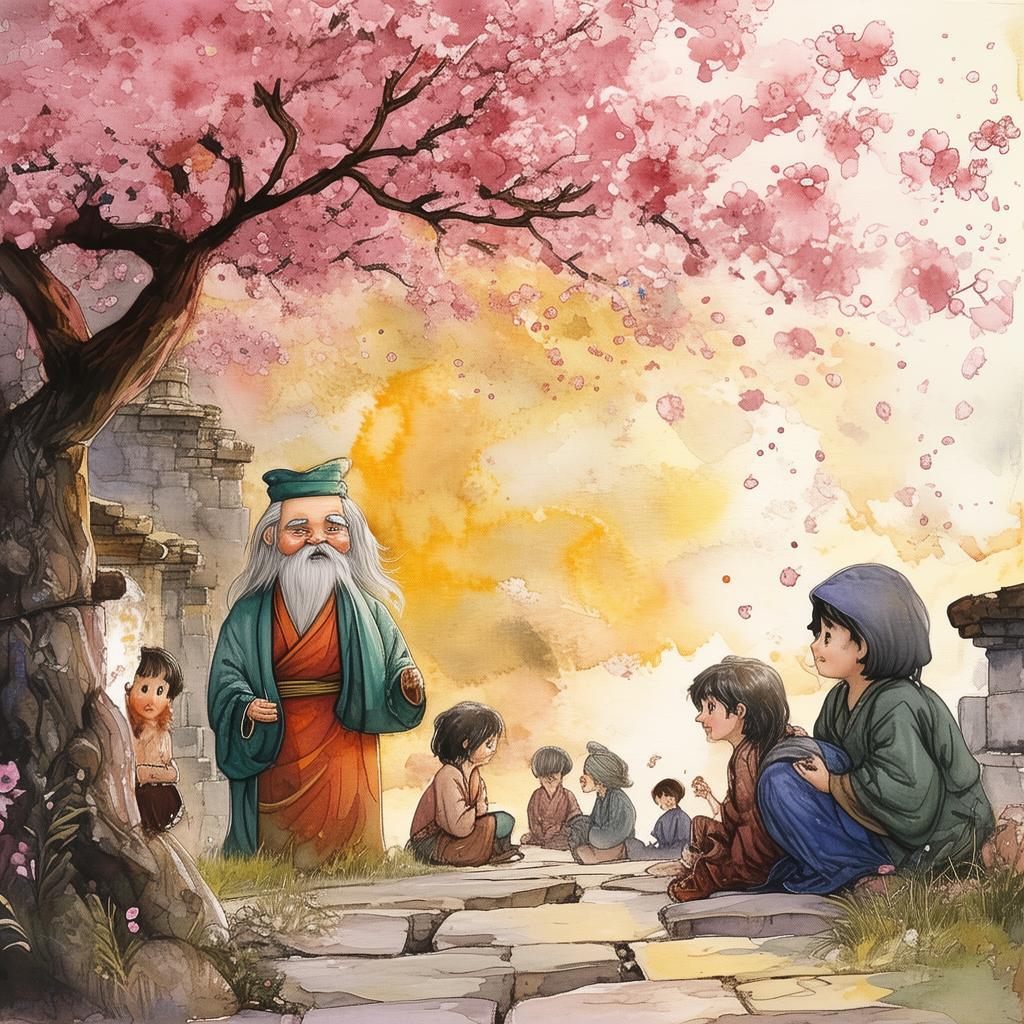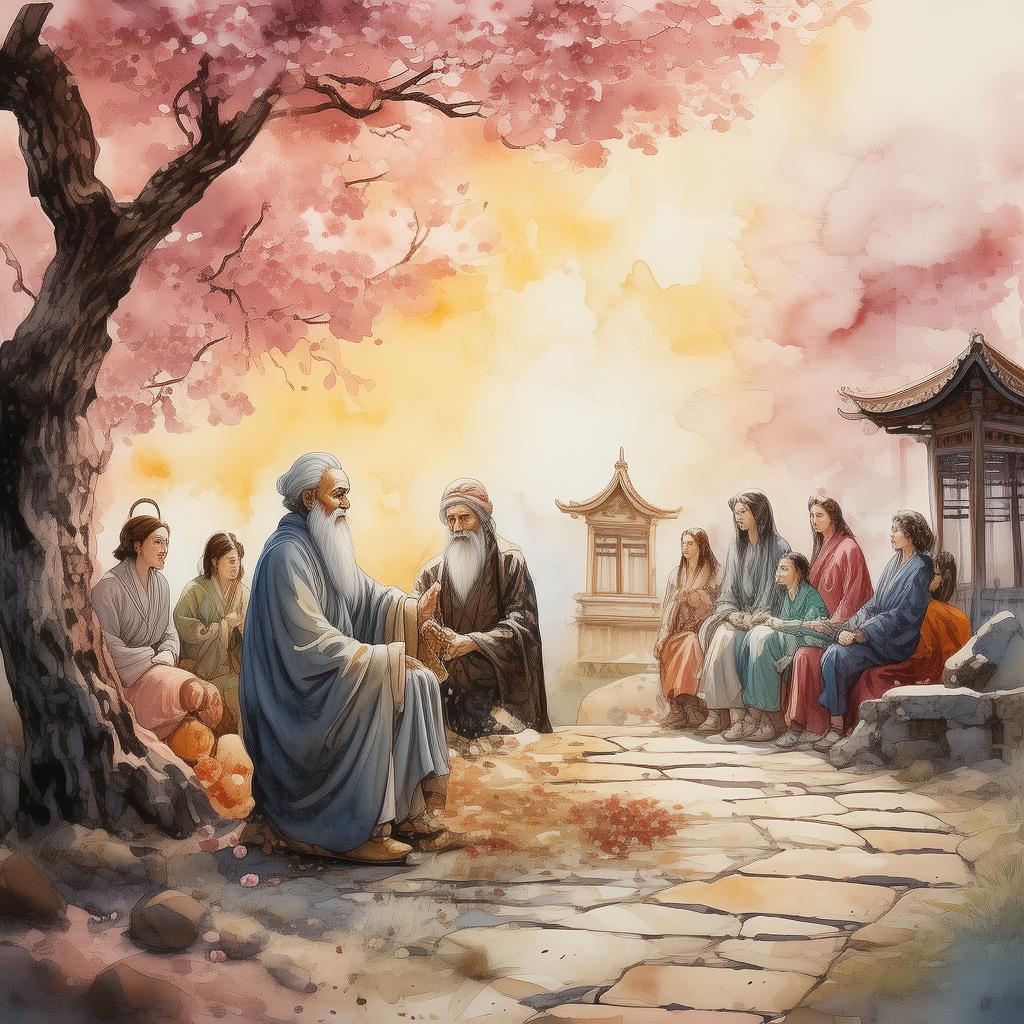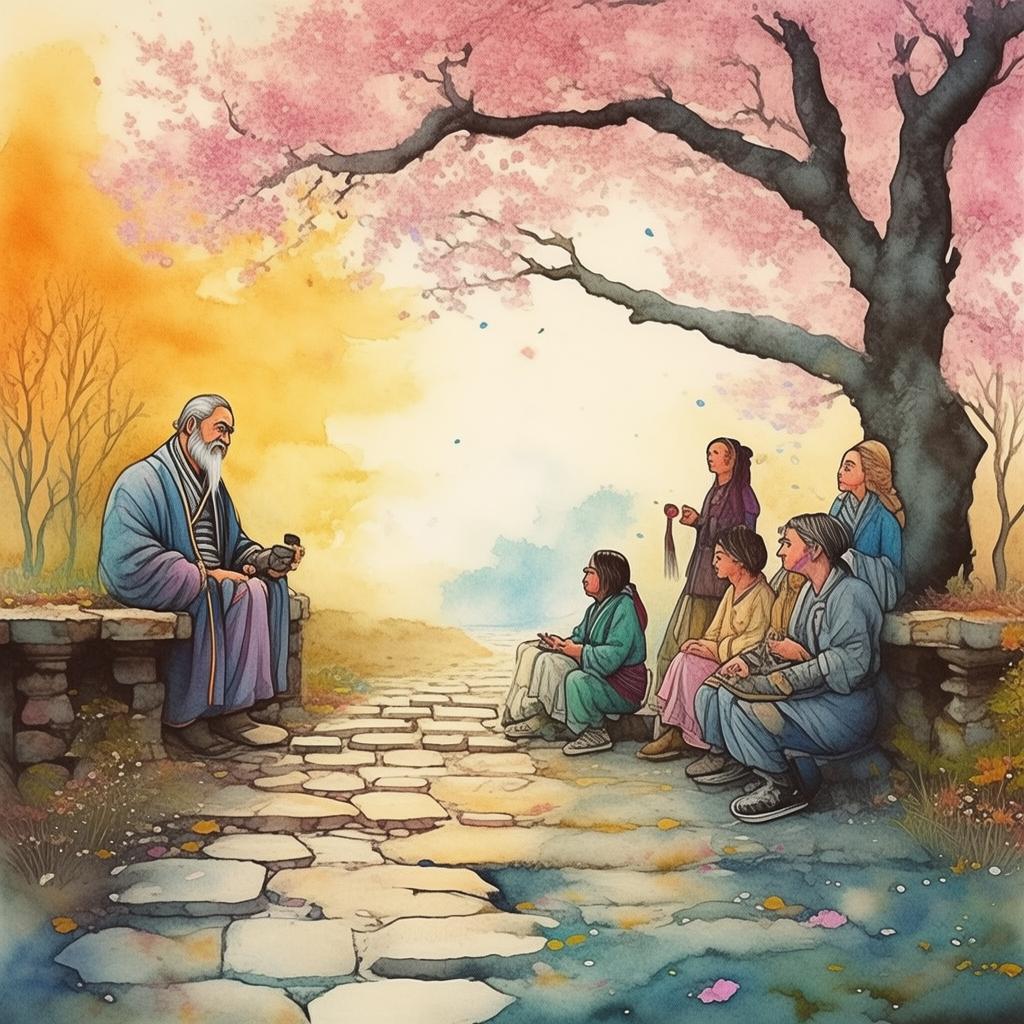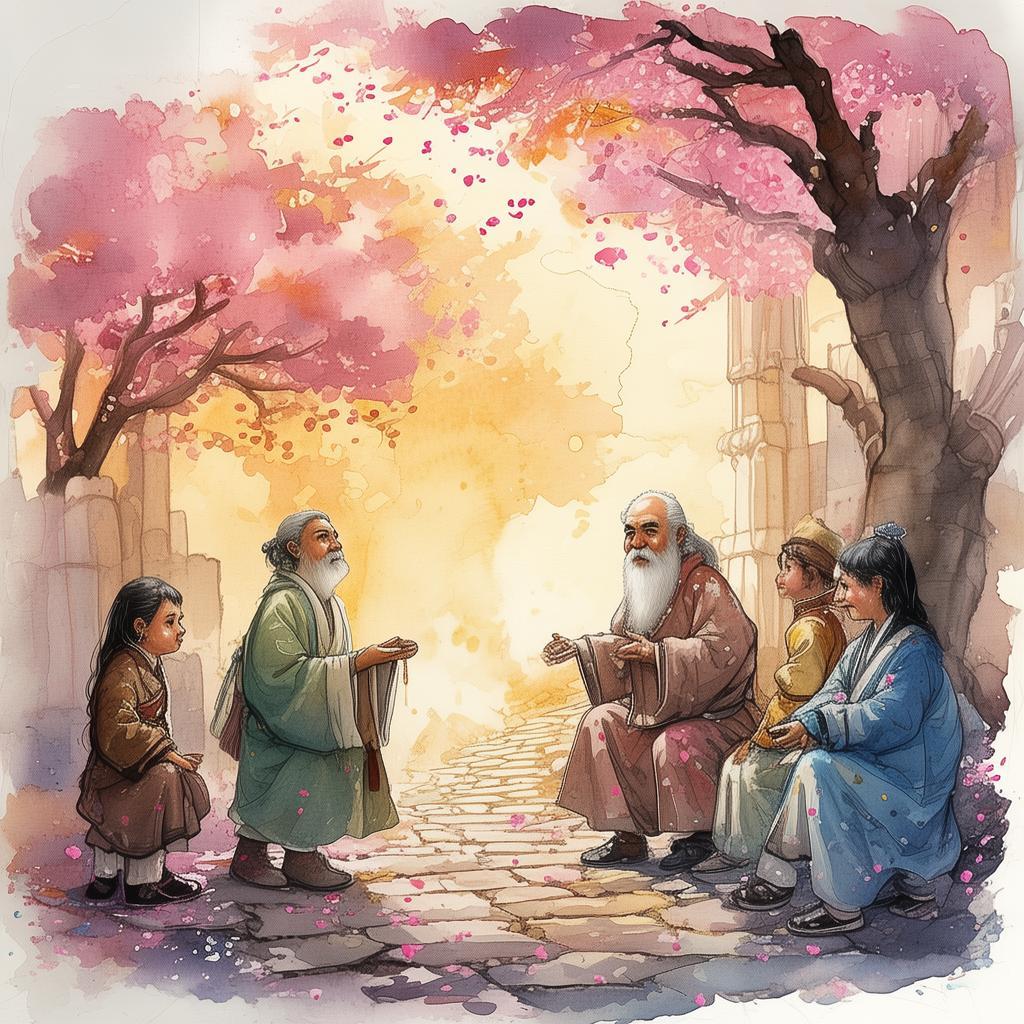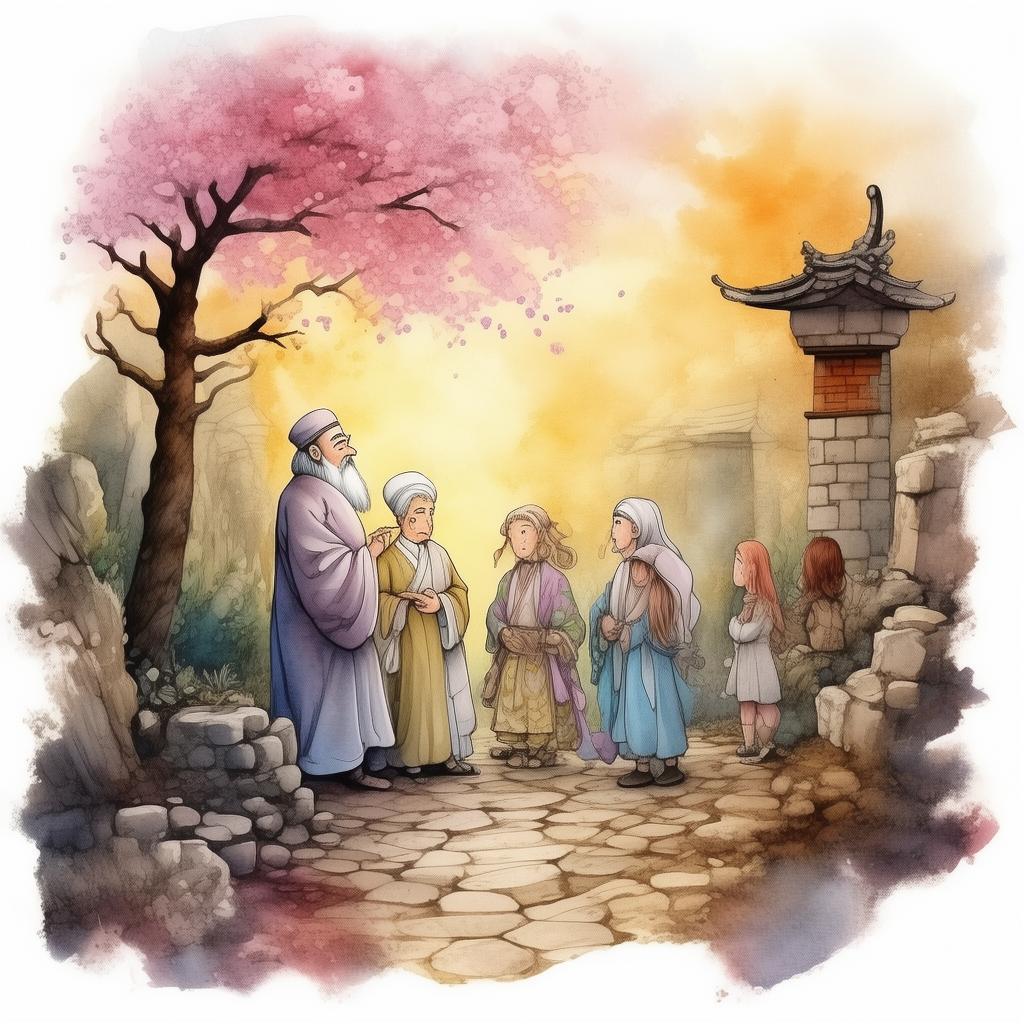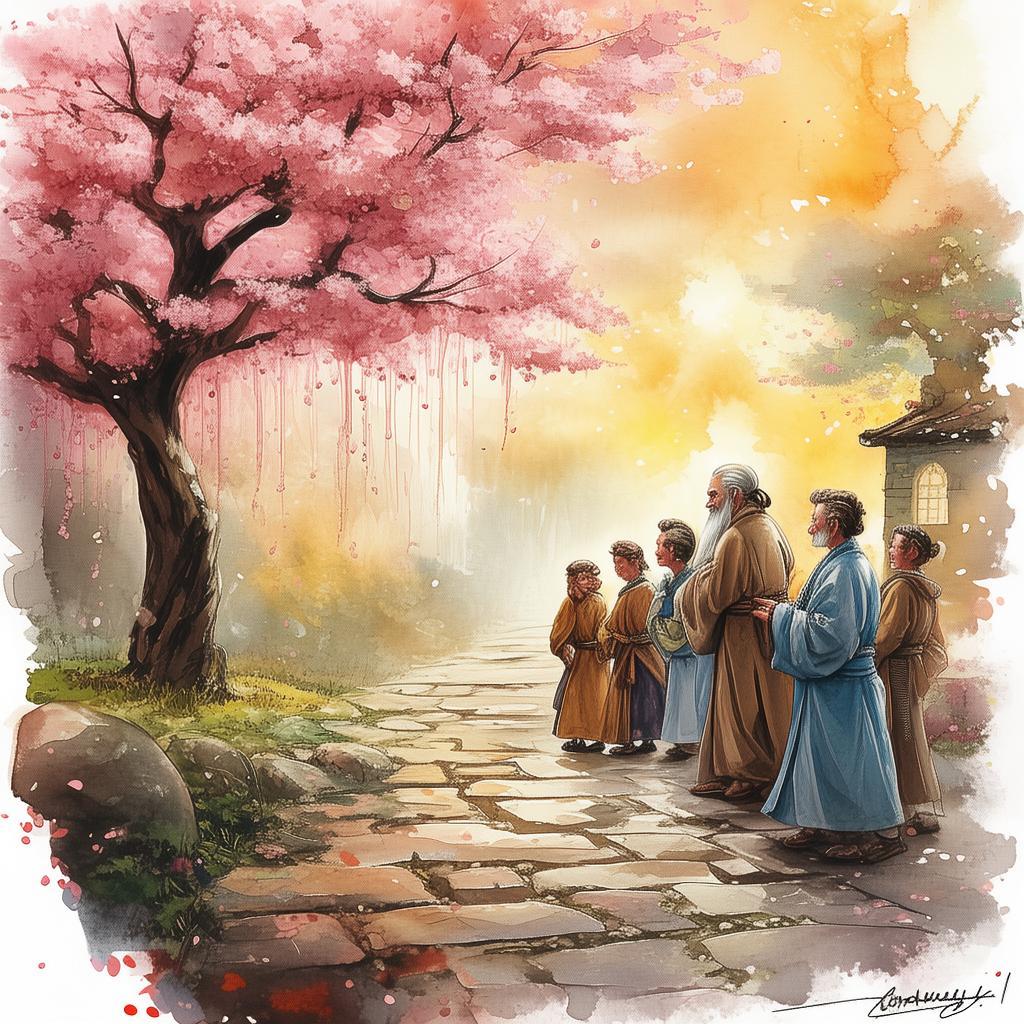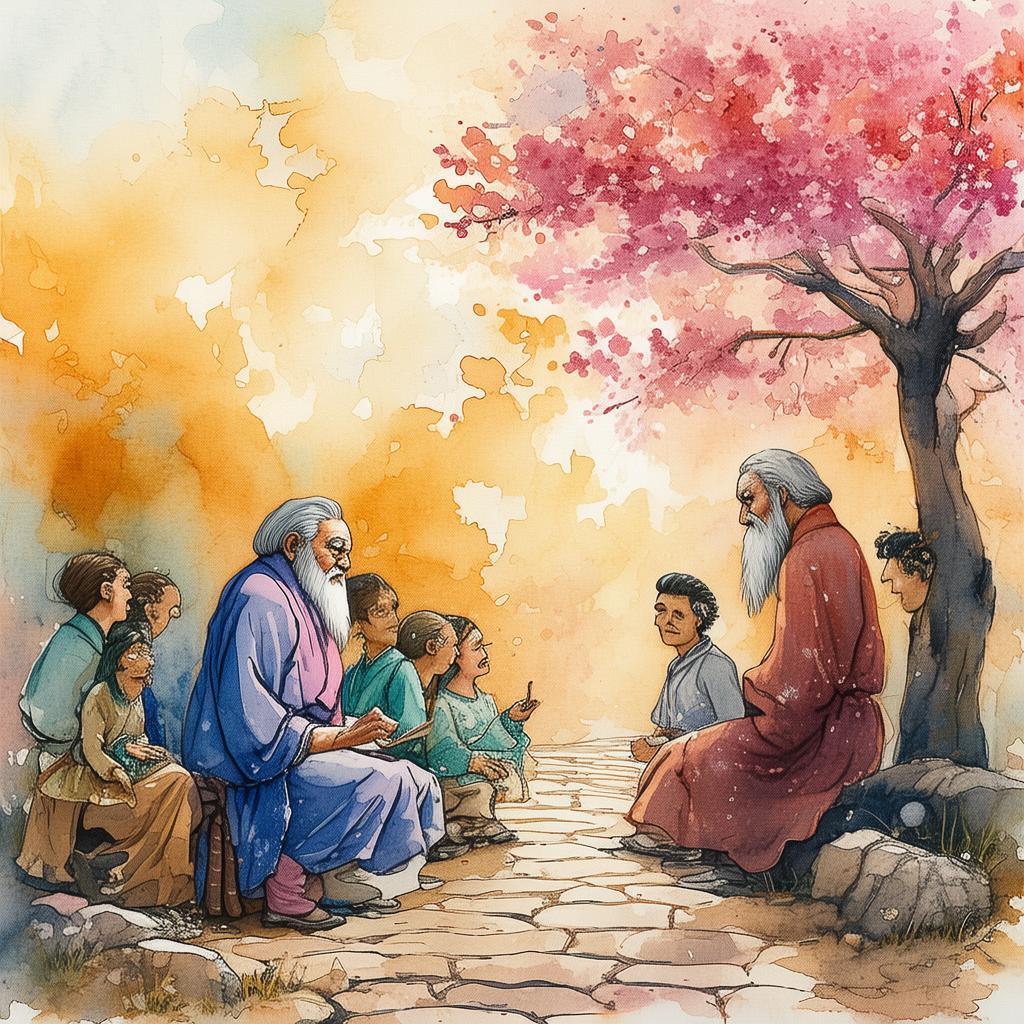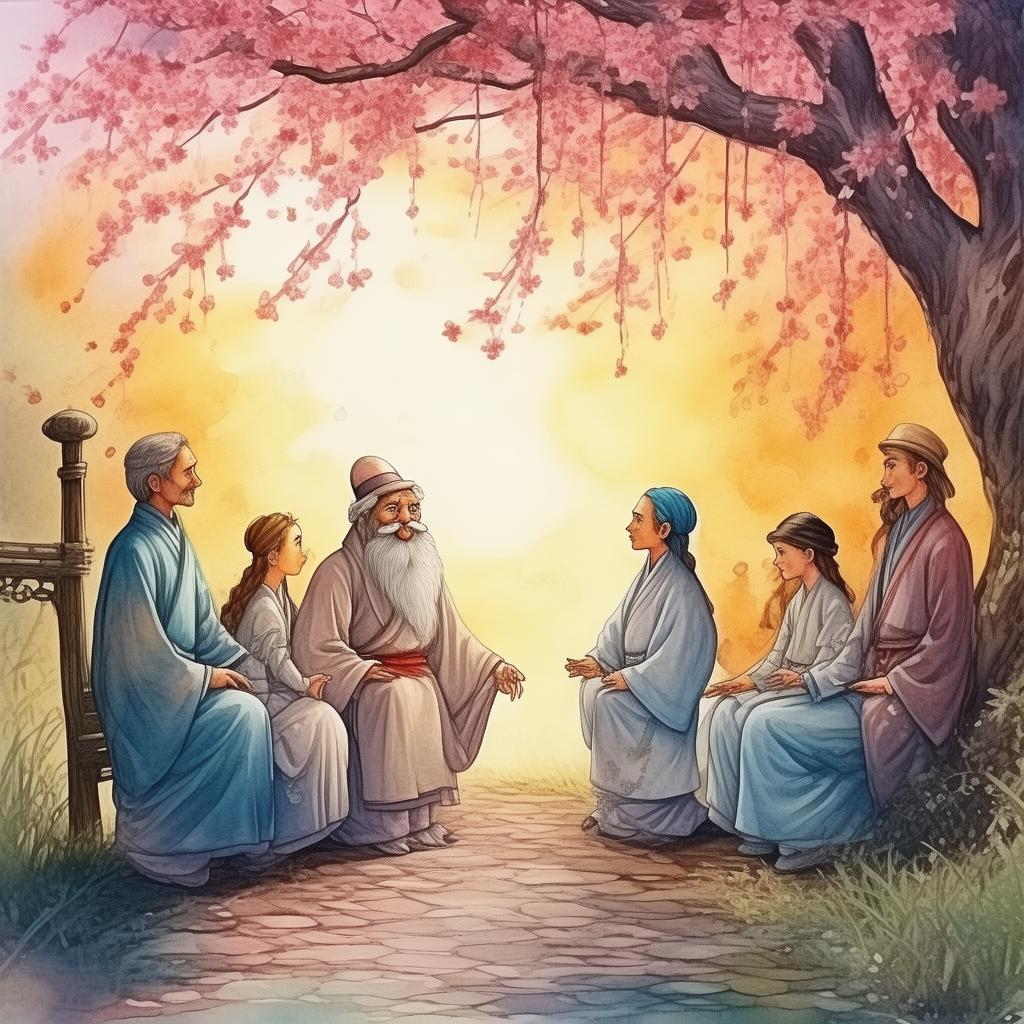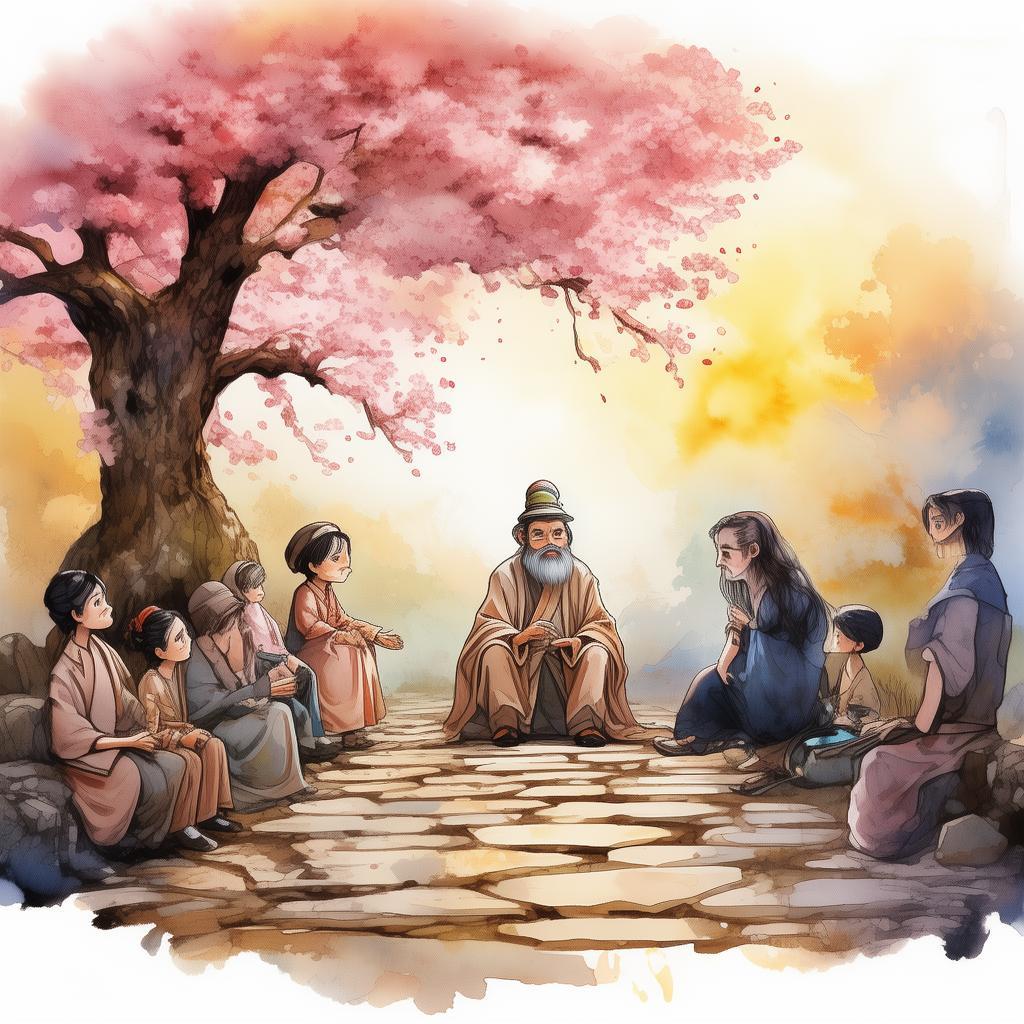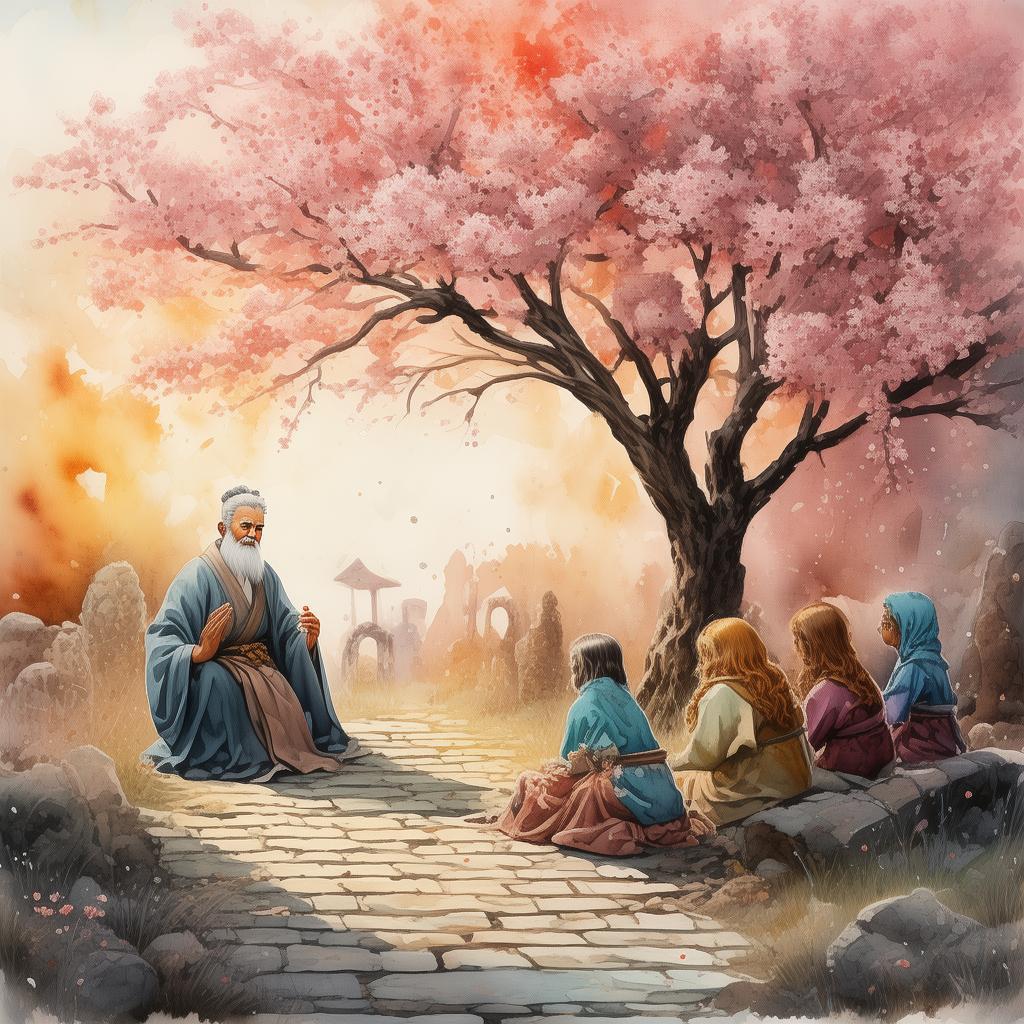Flavors of Deceit: The Secret of the Golden Spoon
In the heart of the ancient culinary capital of Euphoria, where the air was thick with the scent of exotic spices and the sound of sizzling pans echoed through the cobblestone streets, there lived a chef named Liang. His name was whispered among the elite, for Liang was no ordinary chef; he was a maestro of flavors, a culinary artist whose dishes were as sought after as they were elusive.
The story begins on a crisp autumn morning, when Liang received an invitation that would change his life. The Imperial Chef, a legendary figure whose presence was felt in whispers and whose absence was felt in the absence of the finest dishes, had decided to hold a grand culinary competition. The winner would be granted the honor of creating the Imperial Banquet, a feast that would be remembered for generations.
Liang's heart raced with anticipation. He had been preparing for this moment his entire life. His journey had been long and arduous, filled with countless hours in the kitchen, mastering the art of balancing flavors, understanding the nuances of ingredients, and perfecting the art of presentation. Now, his time had come.
The competition was fierce. Chefs from across the land had gathered, each with their own unique style and secret recipes. The atmosphere was thick with tension, as the judges, a panel of the most discerning palates in the land, awaited the first dish to be presented.
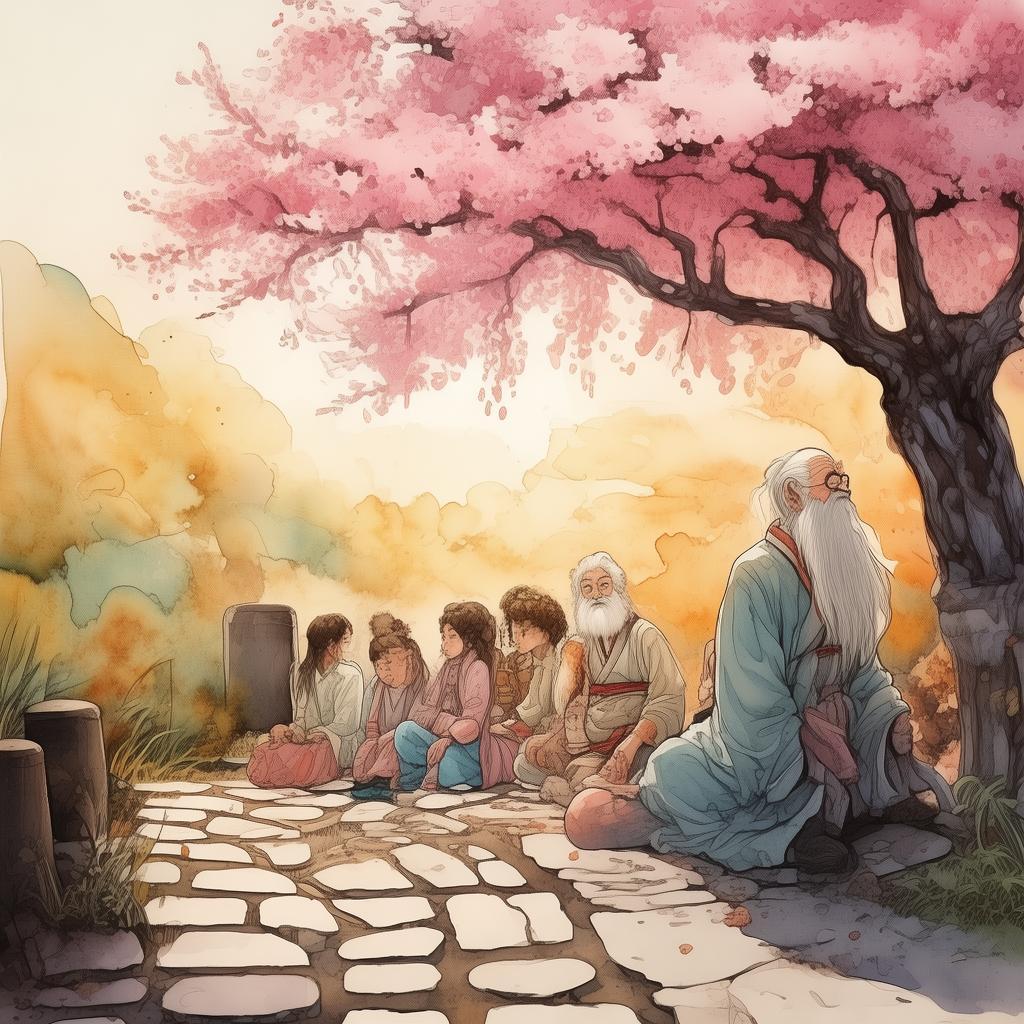
Liang's entry was a simple yet elegant dish, a dish that he had been perfecting for years. It was a dish that he had named "The Golden Spoon," a name that held a special significance for him. The spoon was not just a utensil; it was a symbol of his journey, a memento of the trials and triumphs he had faced.
As he presented his dish, the room fell silent. The judges took their first bites, their expressions unreadable. The silence stretched on, until finally, the head judge broke it.
"The dish is exquisite," he said, his voice tinged with awe. "The balance of flavors is perfect, the presentation is a work of art. However, there is something... missing."
Liang's heart sank. He knew the dish was his best work, but the judges were right. There was something missing. He had been so focused on the flavors and the presentation that he had overlooked the most important part of his journey.
The head judge continued, "The dish is a masterpiece, but it lacks the soul that only you, Chef Liang, can provide."
The words stung, but Liang knew they were true. He had been so caught up in the pursuit of perfection that he had forgotten the essence of his craft. The soul of his cooking was his journey, his story, his life.
As the competition progressed, Liang realized that he was not just competing against other chefs; he was competing against himself. He needed to find the courage to share his story, to let his journey be the guiding force behind his flavors.
In the final round, Liang decided to take a risk. He prepared a dish that was a reflection of his life, a dish that told the story of his journey. He used ingredients that held personal significance to him, and he cooked with the passion and dedication that had driven him for so long.
When he presented the dish, the room was silent once more. The judges took their first bites, and as they chewed, a collective gasp filled the room. The flavors were rich and complex, but they were also deeply personal. The judges could taste the journey, the trials, and the triumphs that had shaped Liang's life.
The head judge stood up, his voice filled with emotion. "Chef Liang, your dish is a masterpiece, not just in taste but in storytelling. You have shared your journey with us, and for that, you have won."
Liang bowed deeply, his heart swelling with pride and relief. He had not only won the competition but also found the courage to be true to himself. The Golden Spoon was not just a dish; it was a symbol of his journey, a testament to the power of sharing one's story.
From that day on, Liang's dishes were no longer just about flavors; they were about the stories behind them. His journey had taught him that the true essence of culinary art was not in the ingredients or the technique, but in the soul of the chef and the story they were willing to share.
And so, the legend of Chef Liang spread far and wide, a tale of a man who found his true voice in the kitchen, a voice that resonated with the power of storytelling and the soul of culinary art.
✨ Original Statement ✨
All articles published on this website (including but not limited to text, images, videos, and other content) are original or authorized for reposting and are protected by relevant laws. Without the explicit written permission of this website, no individual or organization may copy, modify, repost, or use the content for commercial purposes.
If you need to quote or cooperate, please contact this site for authorization. We reserve the right to pursue legal responsibility for any unauthorized use.
Hereby declared.
